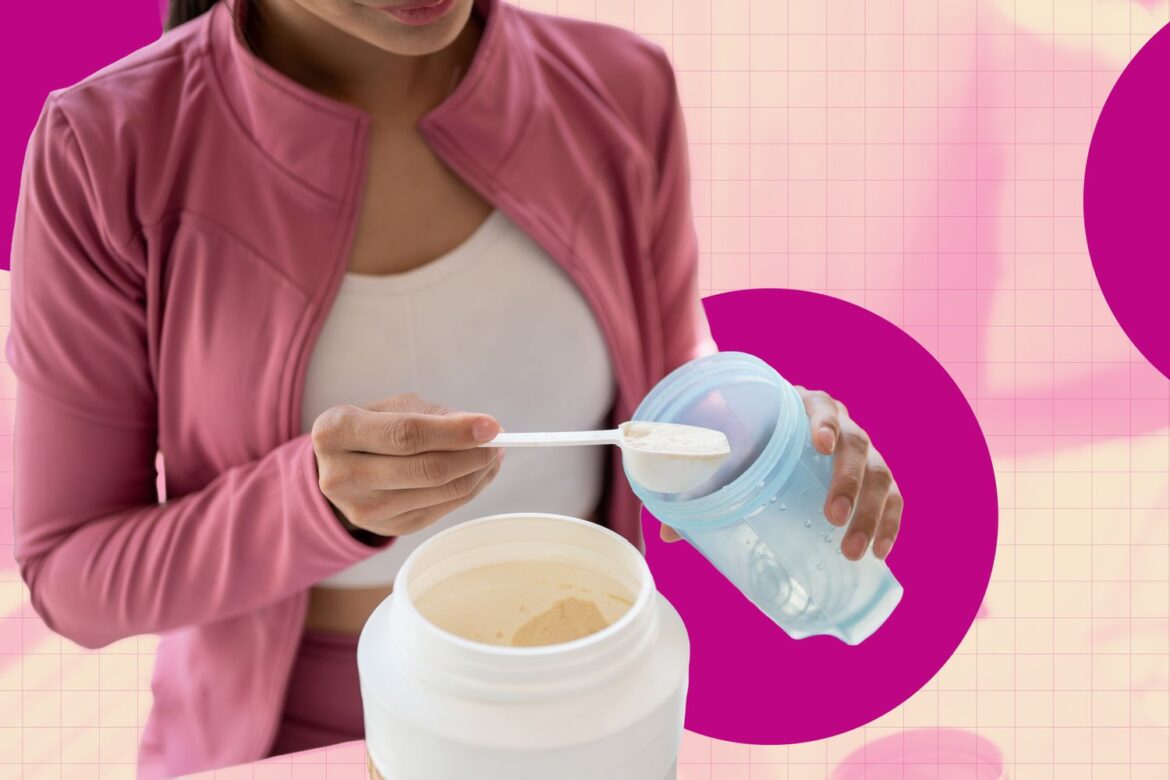Women over 40 may benefit from creatine since they naturally store less as they age.Creatine boosts brain energy to support better memory, focus and mental sharpness.It helps strengthen bones, build muscle and reduce inflammation as women age.
Creatine has become one of the most talked-about supplements, and many people are adding it to their daily routines. While most research has focused on men, emerging research suggests females—especially those over 40—could benefit from consuming it regularly, too. “Women tend to have lower creatine stores than men, which means they may experience even greater benefits from supplementing,” says Marie Spano, M.S., RD, CSCS, CSSD. In fact, women naturally store 70% to 80% less creatine in their bodies than men and tend to consume fewer dietary sources of creatine, such as red meat and seafood. As people age, creatine intake tends to decline even further, making supplementation a compelling option.
So what exactly is creatine, and how can it help support women over 40? Let’s dig into the science.
What Is Creatine?
Creatine is a compound found in every cell of the body. It’s naturally produced from amino acids and stored primarily in muscle tissue. Simply put, creatine provides your body energy. It helps your body replenish energy during periods of high demand, such as intense exercise, or when energy is limited, such as during mental fatigue or sleep-deprivation.
You can get creatine from protein-rich foods like meat and seafood, but it’s also available as a dietary supplement. Most supplements come in powdered form that can be mixed with liquids, though you can also find gummies, tablets and capsules. Because it’s difficult to get enough creatine from food alone to boost your body’s stores, supplements can help fill in the gap.
Can Support Better Memory
While you might not notice memory changes in your 40s, it never hurts to give your brain a little extra boost—and that’s where creatine can come in. “Studies suggest that creatine doesn’t just fuel muscles: it may also support sharper memory, better focus and faster thinking,” notes Spano.
Leslie Bonci, M.P.H., RD, CSSD, LDN, agrees. “Creatine in the brain is increased with supplementation. That increase can improve cognitive function, especially memory,” she says.
Studies have found taking creatine may improve memory in healthy people, with even greater benefits seen in older adults. These effects occur because creatine supports your brain’s energy systems, increasing levels of phosphocreatine and ATP—the main energy sources your brain cells use. Creatine also supports your mitochondria, your cell’s “powerhouses,” helping them produce more energy more efficiently. This extra energy helps your brain perform at its best. Interestingly, research shows taking more than 5 grams per day doesn’t appear to provide additional benefits, so smaller doses may be enough to support better memory.
May Increase Bone Density
Women are at greater risk of developing osteoporosis as they age, and bone density naturally begins to decline after age 40. Creatine may play a role in supporting bone health by stimulating osteoblasts, the cells that are responsible for building bone. When these cells are more active, they release a protein called osteoprotegerin, which slows down osteoclasts, the cells that break down bone. The result? Less bone loss and stronger bones.
One study in postmenopausal women found that those who took 8 grams of creatine per day, combined with strength training, preserved more bone density in the hip than those who didn’t take creatine. These women also showed improvements in bone geometry, suggesting stronger bones.
Helps Promote Muscle Mass & Strength
Women who lift weights may better preserve their strength by taking creatine. “Pairing creatine with resistance training can help women gain more muscle and strength compared to resistance training alone,” shares Spano. “This gives women an important edge for staying strong, independent and active as they age.”
As we age, we naturally lose not only bone density but also lean muscle mass and strength, which can increase the risk of sarcopenia, age-related muscle loss. Combining creatine with resistance training can help counteract this process. “Creatine is most effective for women who do resistance training, but it can also result in greater muscle strength and power in women regardless of training,” adds Bonci.
Research shows that starting with a short, few-day loading phase is most effective for boosting strength. After that, a daily dose of around 5 grams is enough to support both upper and lower body strength. Even taking creatine only on workout days (instead of daily) has been shown to lead to noticeable increases in muscle mass and strength.
May Reduce Inflammation
Berries and fatty fish often get all the credit for their antioxidant and anti-inflammatory benefits (and for a good reason)—but creatine may deserve a spot on that list too.
Chronic, low-grade inflammation tends to increase with age and can negatively affect muscle, bone and overall health. Higher estrogen levels normally help keep inflammation in balance, but during menopause, estrogen drops. This hormonal shift affects not just bones but also inflammation and the immune system. Studies show menopause is linked to a decrease in the immune cells that fight infections, along with an increase in inflammatory markers. Research has found creatine may help by acting like an antioxidant and reducing oxidative stress, which contributes to inflammation.
Our Expert Take
Creatine is one of the hottest supplements right now—and for good reason. For women over 40, it can support better memory, protect bone density, boost muscle mass when paired with resistance training, and help reduce inflammation. “Creatine is a metabolite with mighty benefits for head-to-toe benefits and is an important consideration for a woman’s fuel kit,” says Bonci.


Dining and Cooking